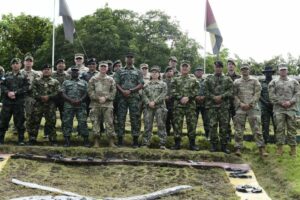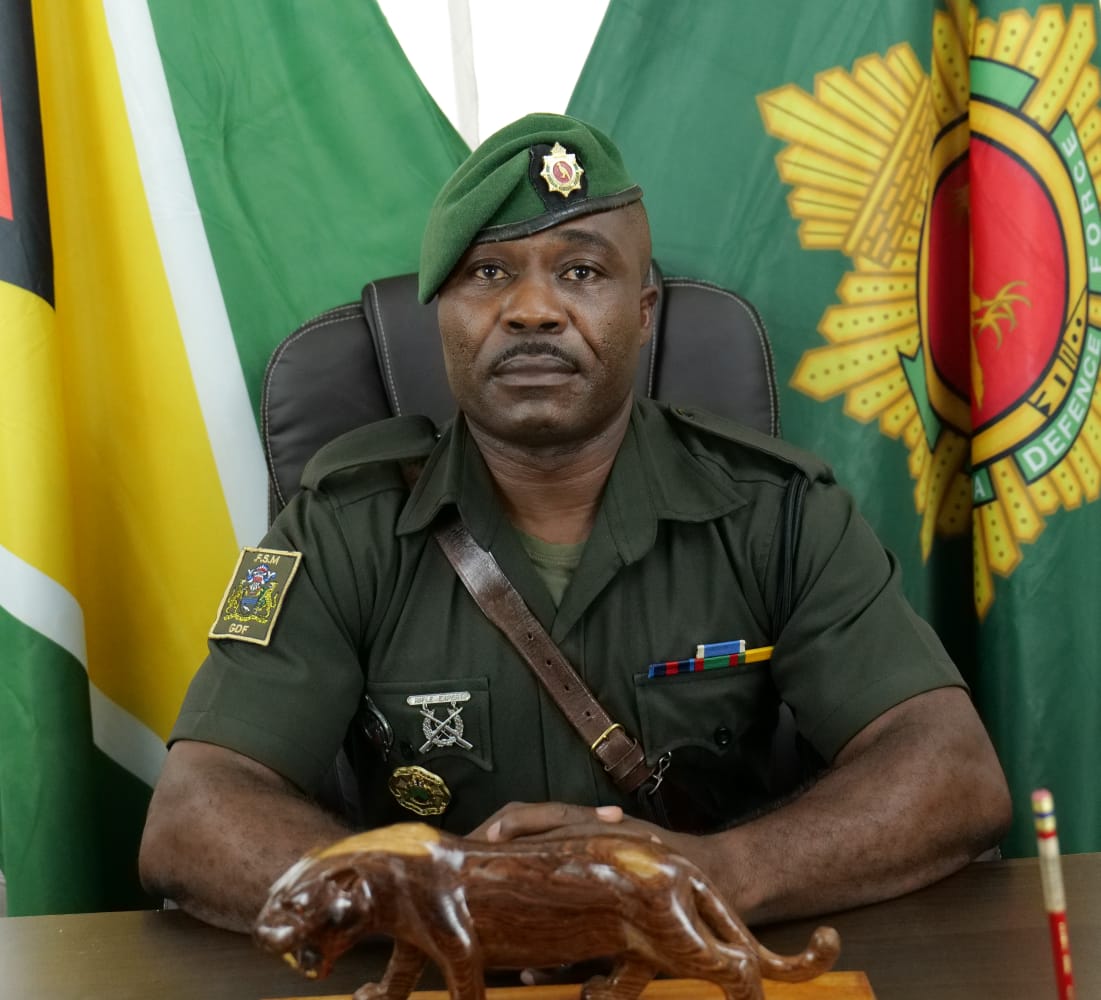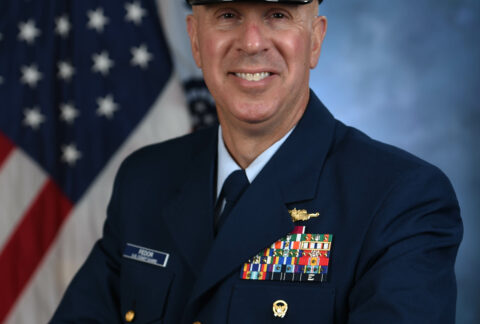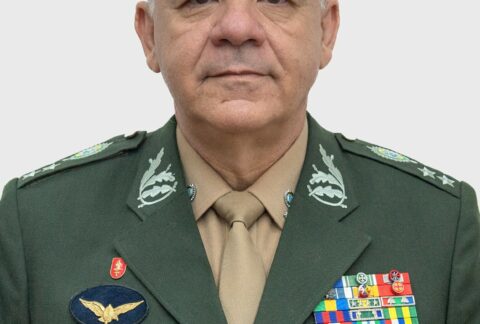For Guyana Defence Force (GDF) Warrant Officer Class One Raul Rodney, GDF force sergeant major (FSM), being an inclusive and influential leader to his noncommissioned officers (NCOs) is his most valuable role.
Accountability, effective communication, and team building are among some of the attributes that Warrant Officer Class 1 Rodney seeks to strengthen at the NCO level.
Warrant Officer Class 1 Rodney spoke with Diálogo about his mission and the goals he has for the future of NCOs.
Diálogo: What is your commitment to the GDF’s NCOs?
Guyana Defence Force Warrant Officer Class One Raul Rodney, GDF force sergeant major: It’s my responsibility to mentor and guide those young NCOs and ensure that their professional military development is up to standards. It’s my responsibility to ensure that they adhere to all the regulations, standard operating procedures (SOPs), and standards of the GDF while providing them with quality, military, and professional, guidance and encouraging them to push for academic development.

Diálogo: The GDF and U.S. Southern Command (SOUTHCOM) co-hosted the first ever NCO Jungle Symposium in Guyana in June 2022. How did the symposium benefit NCOs’ training in difficult terrains?
Warrant Officer Class 1 Rodney: This symposium originated from a conversation with U.S. Army Command Sergeant Major Benjamin Jones, command senior enlisted leader, and I at SOUTHCOM, He is one of my mentors, whom I can’t thank enough as he has guided me along my three years so far as the FSM. We started to work on the various components of the symposium and then eventually it got off the ground. At the symposium we were afforded the opportunity to listen to the various countries’ jungle subject matter expert exchanges within our hemisphere, and how they operated in their jungle as compared to how we do it in our jungle. We have to work together to understand the various SOPs, and tactics, techniques, and procedures of our partner nations. This will make better collaboration and strengthen partnerships while sharing knowledge and experiences. Additionally, the Jungle Symposium boasted an obstacle course for the Defence Force Jungle School, which is currently a work in progress.
Diálogo: What kind of exchanges does the GDF have with SOUTHCOM’s Enlisted Leader Professional Development (ELPD) program?
Warrant Officer Class 1 Rodney: The exchange that we have with ELPD are the ones that allows our senior and junior NCOs to improve their professional military development, while at the same time, it affords us capacity building, so we can have a better GDF and a stronger NCO corps. The example that jumps out at me is the Jungle Symposium because we were able to listen to different points of view with partner nations while strengthening regional relationships and sharing best practices and lessons learned on several topics taught in the respective countries’ jungle training.
Diálogo: How are the GDF’s advances toward gender integration?
Warrant Officer Class 1 Rodney: The GDF has started the process of integrating its females in every aspect of the military. We no longer have a difference in evaluation. We are including them in combat arms and are integrated with their male counterparts in our border security. We’re making steady strides to ensure that our females are treated equally and at the same time, that they are integrated and feel comfortable working with their male counterparts.
Diálogo: You graduated at the NCO Leadership Center of Excellence (NCOLCoE), in Fort Bliss, Texas. How significant was your experience at NCOLCoE? What are the benefits of the interaction between instructors and students from partner nations?
Warrant Officer Class 1 Rodney: I attended the NCOLCoE between 2019 and 2020 and I also studied at a few of the U.S. academies before, like the U.S. Coast Guard Training Center in Petaluma, California, which gave me the foundation to move smoothly through the NCOLCoE.
The NCOLCoE prepared me for my current appointment because most of the subjects taught are within my daily office routine. There are occasions when I will reach back to my instructors and colleagues just to have some clarity to execute some of my duties during times of uncertainty. I think the NCOLCoE is good for any NCO, especially those that will be placed in the highest command of leadership.
Diálogo: You encourage your NCOs to “build and maintain trust with their juniors who will depend on them for their guidance.” How is effective communication key to being a successful leader?
Warrant Officer Class 1 Rodney: Communication is key in any organization. Effective communication is a critical component of successful leadership. As a leader, it is essential to communicate clearly and consistently with your team, providing them with the information they need to make informed decisions and carry out their duties effectively. In building and maintaining trust with juniors, NCOs must communicate openly and honestly, creating an environment in which individuals feel comfortable sharing their concerns and ideas. By fostering open lines of communication, leaders can build strong relationships with their team members, ensuring that everyone is working together toward a common goal. Effective communication also helps to ensure that everyone is on the same page, reducing misunderstandings and increasing the overall efficiency of the team. Ultimately, effective communication is key to building trust, promoting teamwork, and achieving success as a leader.
Diálogo: What kind of engagements is the GDF carrying out with the Florida National Guard as part of the State Partnership Program to promote NCOs?
Warrant Officer Class 1 Rodney: The Florida National Guard is a key component for the development of the GDF. Most of the capacity that we are building right now is because of that relationship and connection that we have with them. For example, the Jungle Symposium and the obstacle course that is in progress right now, they are the lead component of that project. Having the Florida National Guard on board is good as they are a great partner. Our NCOs presently are in a better position because of their input.









